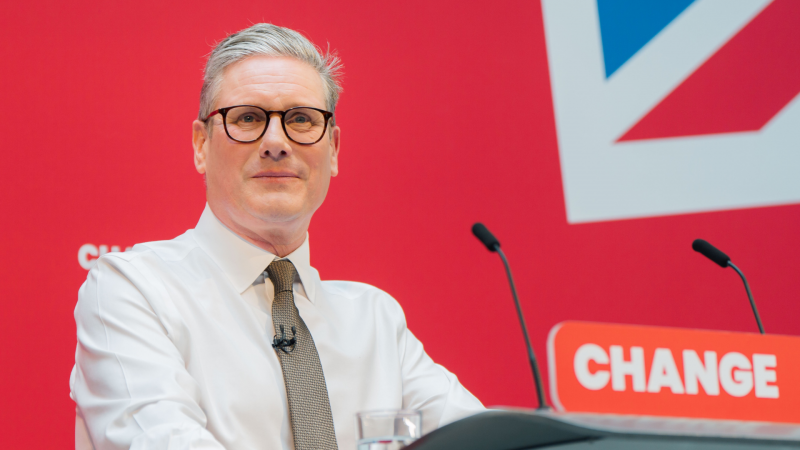
Six in ten Labour voters expect to see change within the first year of the new government, according to a new poll.
Marking 50 days of Starmer’s premiership, the poll for Arden Strategies by JL Partners cast light on what the Labour needs to do to stay in power and on the different tribes that made up the party’s electoral coalition last month.
Keir Starmer and the Labour Party remain in positive territory with their voters, with eight in ten holding a positive view of Starmer and 89 percent for the Labour Party.
Three other Labour frontbenchers tested in the poll also were in positive territory, with Chancellor Rachel Reeves on +34, Deputy Prime Minister Angela Rayner on +32 and Home Secretary Yvette Cooper on +24.
While almost nine in ten (86 percent) of Labour voters said they felt enthusiastic about voting for Labour at the general election, 61 percent said they expected to see change as a result of the new government’s actions in under 12 months.
Making progress on addressing challenges in the health service could be key to maintaining support, according to the poll, with almost half (49 percent) saying they would prioritise “building an NHS fit for the future”.
READ MORE: Labour MP does not rule out voting against government over cuts to winter fuel payments
Labour’s ‘voter tribes’
The poll’s analysis of Labour voters broke the party’s electoral coalition into seven “voter tribes”:
- ‘Leaning Left’, described as the voters Labour risks losing to the Greens or independents and want to see economic redistribution and a distinct offering on net zero – making up a quarter (25 percent) of Labour voters
- ‘Starmer’s Troops’, described as voters who are very loyal to the Labour Party – making up 24 percent of Labour voters
- ‘Blue Lights’, described as those voters who prioritise the NHS and other frontline “blue lights” public services and want to see Labour fix the NHS – making up 12 percent of Labour voters
- ‘Purple Values’, described as the voters who switched from Conservative to Labour at the last election and who want to see the government deliver on economic competence – making up 11 percent of Labour voters
- ‘Generation Labour’, described as being socially progressive 18-34-year-olds who want to see a more progressive agenda on climate change and housing – making up nine percent of Labour voters
- ‘Stop the boats’, described as the “right flank of the broad 2024 coalition” and want to see action on illegal immigration – making up nine percent of Labour voters
- ‘Deliver or die’, described as being voters “desperate for change” and expect to see change in the next six months – making up five percent of Labour voters
Jim Murphy, founder of Arden Strategies said: “As Keir Starmer reaches the halfway mark of his first 100 days in office, after the biggest win of any party for a generation, our poll examines the wants and needs of the voters who put him there.
“United in their overwhelmingly positive view of the Prime Minister, as well as a demand for investment in the NHS, this new coalition of voters are eager to see results and fast.
“The seven tribes we have identified may hold diverse priorities; from climate change to housing, immigration to frontline public services, economic growth to tax and spend. But they are united in their positivity about Labour and the key players in Starmer’s Cabinet, who they have entrusted to deliver change.”
Sign up to our must-read daily briefing email on all things Labour
SHARE: If you have anything to share that we should be looking into or publishing about this story – or any other topic involving Labour– contact us (strictly anonymously if you wish) at [email protected].
SUBSCRIBE: Sign up to LabourList’s morning email here for the best briefing on everything Labour, every weekday morning.
DONATE: If you value our work, please donate to become one of our supporters here and help sustain and expand our coverage.
PARTNER: If you or your organisation might be interested in partnering with us on sponsored events or content, email [email protected].




More from LabourList
SPONSORED: ‘Industrial hemp and the challenge of turning Labour’s priorities into practice’
‘A day is a long time in politics, so we need ‘action this day’’
Strong support for child social media ban among Labour members, poll reveals